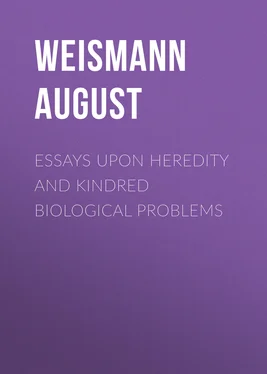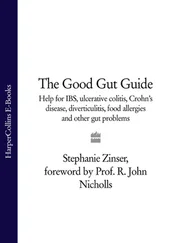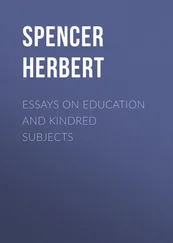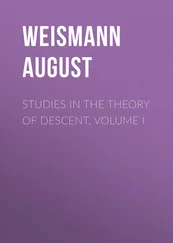August Weismann - Essays Upon Heredity and Kindred Biological Problems
Здесь есть возможность читать онлайн «August Weismann - Essays Upon Heredity and Kindred Biological Problems» — ознакомительный отрывок электронной книги совершенно бесплатно, а после прочтения отрывка купить полную версию. В некоторых случаях можно слушать аудио, скачать через торрент в формате fb2 и присутствует краткое содержание. Жанр: foreign_antique, Биология, на английском языке. Описание произведения, (предисловие) а так же отзывы посетителей доступны на портале библиотеки ЛибКат.
- Название:Essays Upon Heredity and Kindred Biological Problems
- Автор:
- Жанр:
- Год:неизвестен
- ISBN:нет данных
- Рейтинг книги:5 / 5. Голосов: 1
-
Избранное:Добавить в избранное
- Отзывы:
-
Ваша оценка:
- 100
- 1
- 2
- 3
- 4
- 5
Essays Upon Heredity and Kindred Biological Problems: краткое содержание, описание и аннотация
Предлагаем к чтению аннотацию, описание, краткое содержание или предисловие (зависит от того, что написал сам автор книги «Essays Upon Heredity and Kindred Biological Problems»). Если вы не нашли необходимую информацию о книге — напишите в комментариях, мы постараемся отыскать её.
Essays Upon Heredity and Kindred Biological Problems — читать онлайн ознакомительный отрывок
Ниже представлен текст книги, разбитый по страницам. Система сохранения места последней прочитанной страницы, позволяет с удобством читать онлайн бесплатно книгу «Essays Upon Heredity and Kindred Biological Problems», без необходимости каждый раз заново искать на чём Вы остановились. Поставьте закладку, и сможете в любой момент перейти на страницу, на которой закончили чтение.
Интервал:
Закладка:
I have endeavoured to explain this fact as an adaptation to the general conditions of life. In my opinion life became limited in its duration, not because it was contrary to its very nature to be unlimited, but because an unlimited persistence of the individual would be a luxury without a purpose. Among unicellular organisms natural death was impossible, because the reproductive cell and the individual were one and the same: among multicellular animals it was possible, and we see that it has arisen.
Natural death appeared to me to be explicable on the principle of utility, as an adaptation.
These opinions, to which I shall return in greater detail in a later part of this paper, have been opposed by Götte 59, who does not attribute death to utility, but considers it to be a necessity inherent in life itself. He considers that it occurs not only in the Metazoa or multicellular animals, but also in unicellular forms of life, where it is represented by the process of encystment, which is to be regarded as the death of the individual. This encystment is a process of rejuvenescence, which, after a longer or shorter interval, interrupts multiplication by means of fission. According to Götte, this process of rejuvenescence consists in the dissolution of the specific structure of the individual, or in the retrogression of the individual to a form of organic matter which is no longer living but which is comparable to the yolk of an egg. This matter is, by means of its internal energy, and in consequence of the law of growth which is inherent in its constitution, enabled to give rise to a new individual of the same species. Furthermore, the process of rejuvenescence among unicellular beings corresponds to the formation of germs in the higher organisms. The phenomena of death were transmitted by heredity from the unicellular forms to the Metazoa when they arose. Death does not therefore appear for the first time in the Metazoa, but it is an extremely ancient process which ‘goes back to the first origin of organic beings’ (l. c., p. 81).
It is obvious, from this short résumé , that Götte’s view is totally opposed to mine. Inasmuch as only one of these views can be fundamentally right, it is worth while to compare the two; and although we cannot at present hope to explain the ultimate physiological processes which involve life and death, I think nevertheless that it is quite possible to arrive at definite conclusions as to the general causes of these phenomena. At any rate, existing facts have not been so completely thought out that it is useless to consider them once more.
The question—what do we understand by death? must be decided before we can speak of the origin of death. Götte says, ‘we are not able to explain this general expression quite definitely and in all its details, because the moment of death, or perhaps more exactly the moment when death is complete, can in no case be precisely indicated. We can only say that in the death of the higher animals, all those phenomena which make up the life of the individual cease, and further that all the cells and elements of tissue which form the dead organism, die, and are resolved into their elements.’
This definition would suffice if it did not include that which is to be defined. For it assumes that under the expression ‘dead organism’ we must include those organisms which have brought to an end the whole of their vital functions, but of which the component cells and elements may still be living. This view is afterwards more accurately explained, and in fact there is no doubt that the cessation of the activity of life in the multicellular organism rarely implies any direct connection with the cessation of vital functions in all its constituents. The question however arises, whether it is right or useful to limit the conception of death to the cessation of the functions of the organism. Our conceptions of death have been derived from the higher organisms alone, and hence it is quite possible that the conception may be too limited. The limitation might perhaps be removed by accurate and scientific comparison with the somewhat corresponding phenomena among unicellular organisms, and we might then arrive at a more comprehensive definition. Science has without doubt the right to make use of popular terms and conceptions, and by a more profound insight to widen or restrict them. But the main idea must always be retained, so that nothing quite new or strange may appear in the widened conception. The conception of death, as it has been expressed with perfect uniformity in all languages, has arisen from observations on the higher animals alone; and it signifies not only the cessation of the vital functions of the whole organism, but at the same time the cessation of life in its single parts, as is shown by the impossibility of revival. The post-mortem death of the cells is also part of death, and was so, long before science established the fact that an organism is built up of numerous very minute living elements, of which the vital processes partially continue for some time after the cessation of those of the whole organism. It is precisely this incapacity on the part of the organism to reproduce the phenomena of life anew, which distinguishes genuine death from the arrest of life or trance; and the incapacity depends upon the fact that the death of the cells and tissues follows upon the cessation of the vital functions as a whole. I would, for this reason, define death as an arrest of life, from which no lengthened revival, either of the whole or any of its parts, can take place; or, to put it concisely, as a definite arrest of life. I believe that in this definition I have expressed the exact meaning of the conception which language has sought to convey in the word death. For our present purpose, the cause which gives rise to this phenomenon is of no importance,—whether it is simultaneous or successive in the various parts of the organism, whether it makes its appearance slowly or rapidly. For the conception itself it is also quite immaterial whether we are able to decide if death has really taken place in any particular case; however uncertain we might be, the state which we call death would be not less sharply and definitely limited. We might consider the caterpillar of Euprepia flavia to be dead when frozen in ice, but if it recovered after thawing and became an imago, we should say that it had only been apparently dead, that life stood still for a time, but had not ceased for ever. It is only the irretrievable loss of life in an organism which we call death, and we ought to hold fast to this conception, so that it will not slip from us, and become worthless, because we no longer know what we mean by it.
We cannot escape this danger if we look upon the post-mortem death of the cells of the body as a phenomenon which may accompany death, but which may sometimes be wanting. An experiment might be made in which some part of a dead animal, such as the comb of a cock, might be transplanted, before the death of the cells, to some other living animal: such a part might live in its new position, thus showing that single members may survive after the appearance of death, as I understand it. But the objection might be raised that in such a case the cock’s comb has become a member of another organism, so that it would be lost labour to insert a clause in our definition of death which would include this phenomenon. The same objection might be raised if the transplantation took place a day or even a year before the death of the cock.
Götte is decidedly in error when he considers that the idea of death merely expresses an ‘arrest of the sum of vital actions in the individual,’ without at the same time including that definite arrest which involves the impossibility of any revival. Decomposition is not quite essential to our definition, inasmuch as death may be followed by drying-up 60, or by perpetual entombment in Siberian ice (as in the well-known case of the mammoth), or by digestion in the stomach of a beast of prey. But the notion of a dead body is indeed inseparably connected with that of death, and I believe that I was right in distinguishing between the division of an Infusorian into two daughter-cells, and the death of a Metazoon, which leaves offspring behind it, by calling attention to the absence of a dead body in the process of fission among Infusoria (See below.). The real proof of death is that the organized substance which previously gave rise to the phenomena of life, for ever ceases to originate such phenomena. This, and this alone, is what mankind has hitherto understood by death, and we must start from this definition if we wish to retain a firm basis for our considerations.
Читать дальшеИнтервал:
Закладка:
Похожие книги на «Essays Upon Heredity and Kindred Biological Problems»
Представляем Вашему вниманию похожие книги на «Essays Upon Heredity and Kindred Biological Problems» списком для выбора. Мы отобрали схожую по названию и смыслу литературу в надежде предоставить читателям больше вариантов отыскать новые, интересные, ещё непрочитанные произведения.
Обсуждение, отзывы о книге «Essays Upon Heredity and Kindred Biological Problems» и просто собственные мнения читателей. Оставьте ваши комментарии, напишите, что Вы думаете о произведении, его смысле или главных героях. Укажите что конкретно понравилось, а что нет, и почему Вы так считаете.












